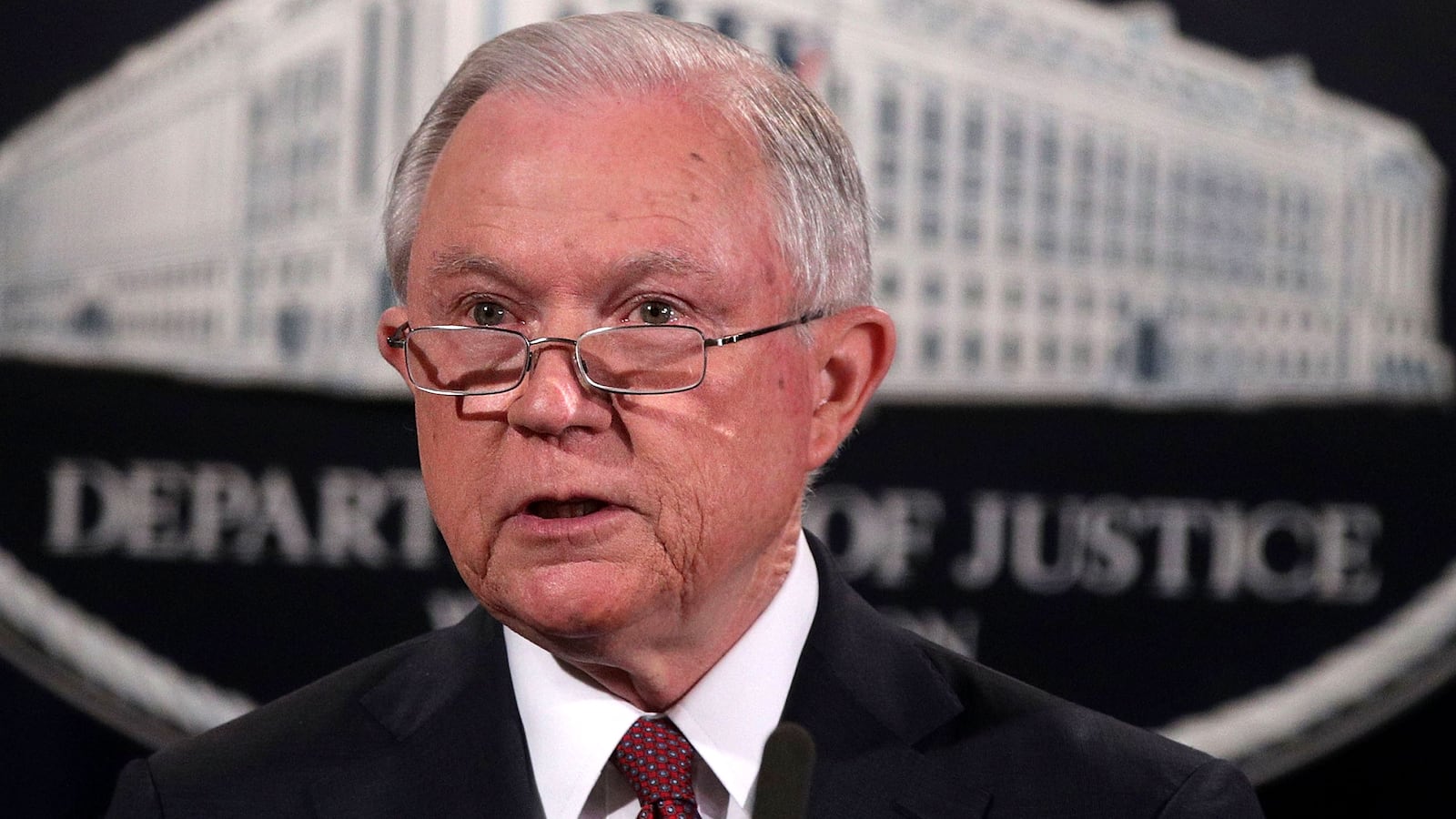Attorney General Jeff Sessions became the voice of the Trump administration on deportations this morning. And for nearly 800,000 undocumented immigrants who came to the U.S. as children, that means deportation is much more likely than it could have been.
Sessions announced that the administration will end a program called Deferred Action for Childhood Arrivals, which temporarily blocked deportations of some undocumented immigrants and gave them work permits.
The Trump administration’s announcement means the Department of Homeland Security will no longer provide DACA protection to people who haven’t applied for it yet. People whose requests are currently pending may still get DACA, according to a statement from DHS. And people who already have DACA and want to renew it will have one month to file for renewal.
The focus of Sessions’ announcement was that President Obama didn’t have the legal authority to implement that program in 2012.
But then Sessions went a step further: He argued it was a bad policy, indicating the Trump administration believes DACA recipients should face deportation just like other undocumented immigrants.
This is important because Trump himself has suggested he holds a more generous view. In a tweet on Tuesday morning, he told Congress to “get ready to do your job - DACA!” (Trump last week said he loves DACA recipients.) The White House’s line over the last few weeks has been that Congress should find a way to protect DACA recipients.
But Sessions—the voice of the administration on this issue—clearly disagrees, even saying that protecting DACA recipients from deportation caused a “humanitarian crisis.”
“The effect of this unilateral executive amnesty, among other things, contributed to a surge of unaccompanied minors on the southern border that yielded terrible humanitarian consequences,” he said Tuesday. “It also denied jobs to hundreds of thousands of Americans by allowing those same jobs to go to illegal aliens.”
Sessions also said DACA is not in America’s best interests.
“To have a lawful system of immigration that serves the national interest, we cannot admit everyone who would like to come here,” he said. “That is an open border policy and the American people have rightly rejected it. Therefore, the nation must set and enforce a limit on how many immigrants we admit each year and that means all cannot be accepted. This does not mean they are bad people or that our nation disrespects or demeans them in any way. It means we are properly enforcing our laws as Congress has passed them.”
The Justice Department decided to rescind DACA “with these principles and duties in mind,” Sessions said.
The fact that Sessions, not Trump or a White House official, made the announcement that DACA would be rescinded indicates that his position—that DACA is bad policy, and that its recipients should face deportation—is the official position of the administration.
It’s possible other administration officials will publicly contradict Sessions and push Congress to pass legislation protecting DACA recipients. But until that happens, Sessions is Trump’s voice on immigration. And for the nearly 800,000 people who have DACA, that means deportation just became much more likely.





